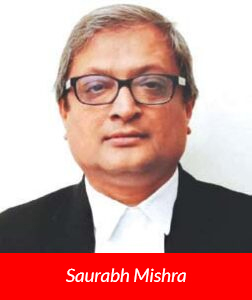 In a robust democracy like India, the judiciary plays a critical role in upholding constitutional principles, protecting citizens’ rights, and maintaining the rule of law. To perform these duties effectively, the Supreme Court is vested with the power of contempt under Article 129 of the Indian Constitution. This power, which remains unbounded even by the provisions of the Contempt of Courts Act, 1971, serves as a deterrent against disrespect and non-compliance of orders and judgments, thereby preserving the court’s dignity and authority.
In a robust democracy like India, the judiciary plays a critical role in upholding constitutional principles, protecting citizens’ rights, and maintaining the rule of law. To perform these duties effectively, the Supreme Court is vested with the power of contempt under Article 129 of the Indian Constitution. This power, which remains unbounded even by the provisions of the Contempt of Courts Act, 1971, serves as a deterrent against disrespect and non-compliance of orders and judgments, thereby preserving the court’s dignity and authority.
Through case studies, we explore the potency of Article 129 and its critical interplay with the Contempt of Courts Act, 1971, to ensure the sanctity of the judicial process.
Understanding Article 129 Article 129 empowers the Supreme Court as a ‘court of record,’ providing it with the authority to punish for contempt of itself. However, the power of contempt extends beyond maintaining the dignity and respect of the court. It also acts as a deterrent against any action that may impede the smooth functioning of the judicial process or disrespect the authority of the Court.
A recent ruling by the Supreme Court in Meenal Bhargava vs. Naveen Sharma reiterates the exercise of this power, highlighting the necessity of Article 129 in preserving the sanctity of the judicial process.
Historical context
The interpretation and application of Article 129 have evolved through landmark judgments. For instance, in Brahma Prakash Sharma and Others v State of Uttar Pradesh (1953), the court expanded the scope of contempt to include actions undermining the court’s dignity or authority.
PN Duda v. P. Shiv Shankar (1988) acknowledged that criticism made in good faith should be allowed, marking a pivotal moment in the reconciliation of the contempt power with freedom of speech.
Supreme Court Bar Association v. Union of India (1998) emphasised that Article 129 should be exercised sparingly and only when necessary to uphold public interest in the administration of justice.
In the aforesaid case as cited above, which was delivered by a Bench of Hon’ble Justices SK Kaul and AS Oka, the court found a contemnor guilty of showing little respect for the ongoing judicial proceedings and wilfully opposing the court’s jurisdiction. Given these findings, the court ordered the contemnor to undergo simple imprisonment for six months and pay a fine of Rs. 25 lakhs within six months.
This case exemplifies the full force of Article 129, underscoring that the Supreme Court’s power to punish for contempt is unrestricted, even by the Contempt of Courts Act, 1971.
The Contempt of Court Act
The Contempt of Court Act, 1971, delineates the power of contempt into civil and criminal categories while providing defences and limitations. However, it has been a subject of debate due to its subjective definitions and wide ambit, raising concerns about potential misuse and infringement on the freedom of speech.
Balancing the two
The power of contempt is a necessary instrument for the judiciary to uphold its majesty and authority and ensure the smooth administration of justice. However, it’s essential to tread carefully to avoid infringing upon the constitutional right to freedom of speech and expression.
Constructive criticism of the judiciary should not only be permitted but also encouraged to uphold democratic principles. Contempt proceedings should be initiated only when there is a substantial threat to the administration of justice. The challenge lies in distinguishing between genuine criticism and a deliberate attempt to undermine the judiciary.
Conclusion
The power of contempt under Article 129 is a significant constitutional provision safeguarding the authority of the judiciary. But, like any potent tool, its use must be judicious and measured. Striking the right balance between upholding the dignity of the court and preserving democratic freedoms is crucial.
The journey towards this balance is ongoing and complex, but it is necessary to strengthen the pillars of our democracy. As the custodian of justice, the Supreme Court must continue to walk this tightrope, maintaining its majesty and authority while upholding the democratic ethos of freedom of speech and expression.
















